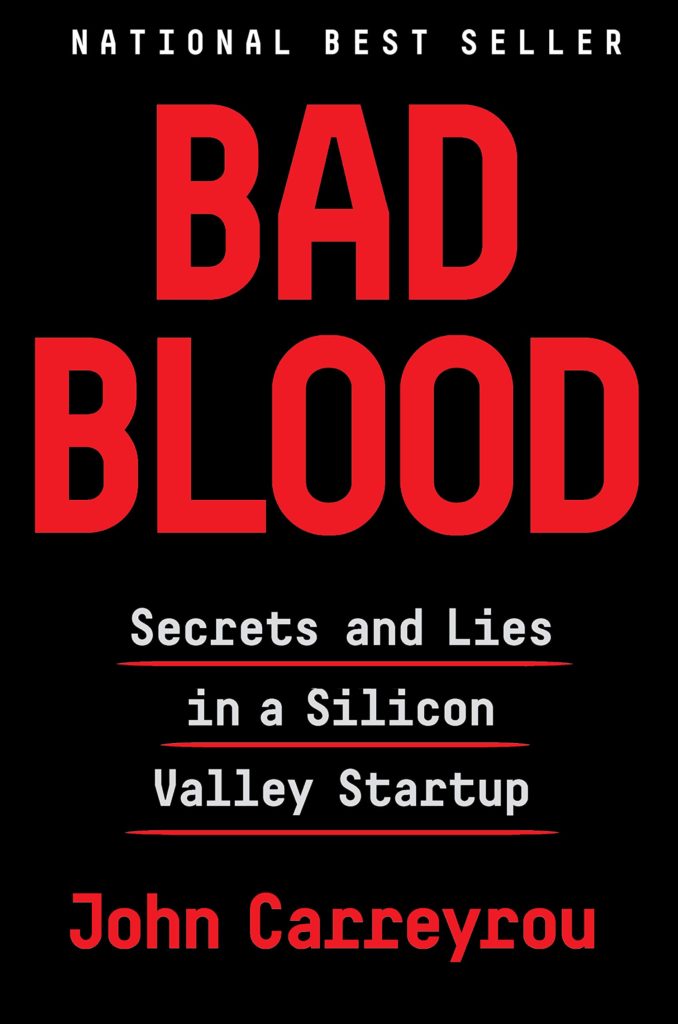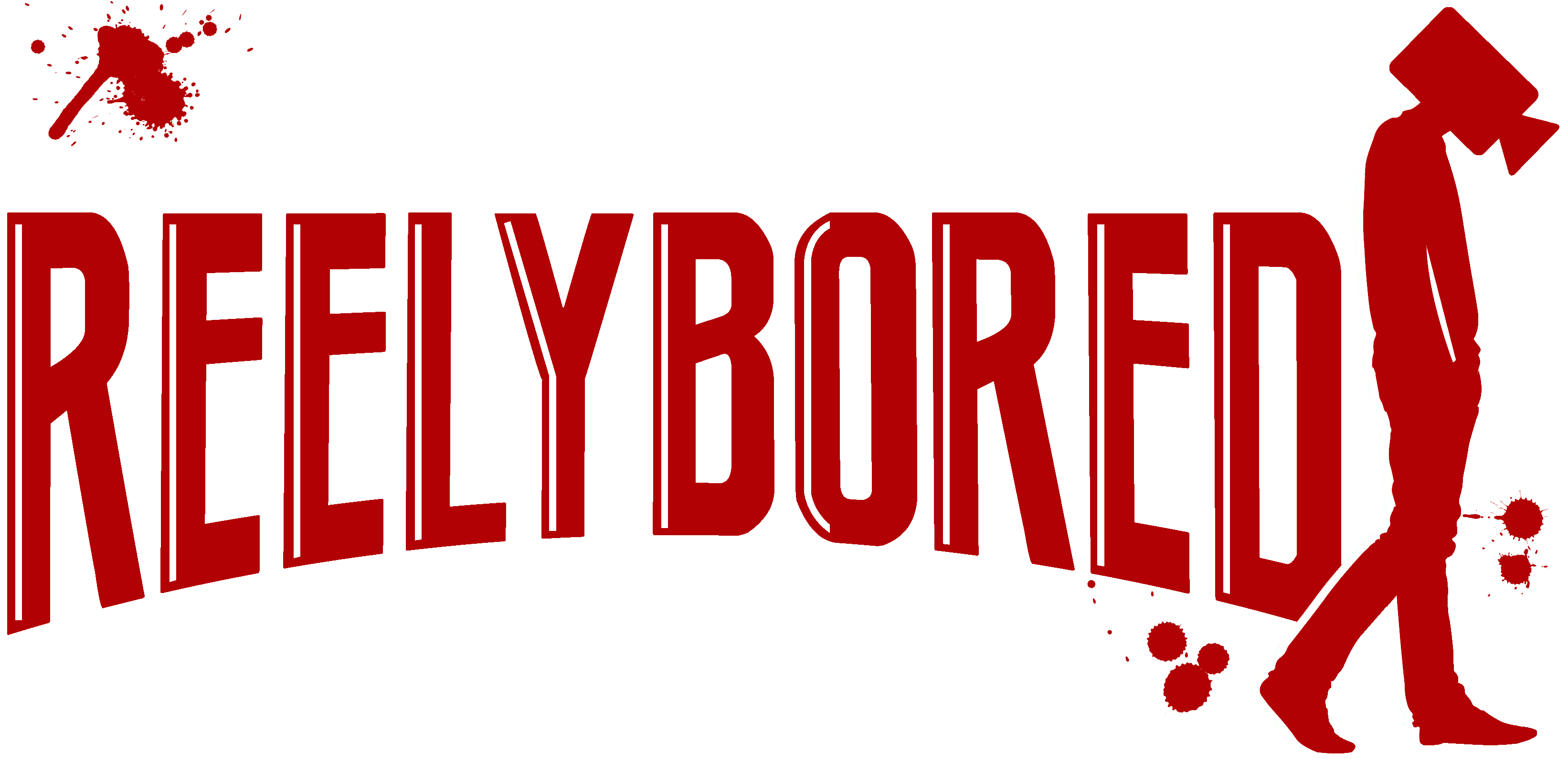
In 2014, Theranos founder and CEO Elizabeth Holmes was widely seen as the female Steve Jobs: a brilliant Stanford dropout whose startup “unicorn” promised to revolutionize the medical industry with a machine that would make blood testing significantly faster and easier. Backed by investors such as Larry Ellison and Tim Draper, Theranos sold shares in a fundraising round that valued the company at more than $9 billion, putting Holmes’s worth at an estimated $4.7 billion. There was just one problem: The technology didn’t work.
A riveting story of the biggest corporate fraud since Enron, a tale of ambition and hubris set amid the bold promises of Silicon Valley.
Non-Fiction Book Reviews Blog: Bad Blood
I purchased Bad Blood: Secrets and Lies in a Silicon Valley Startup for all the wrong reasons. I took a look at the five-star Amazon rating and chalked the book up to revolve around numerous instances of white-collar crimes that took place in the famed tech city. Bad Blood (defined as, having ill will or bad feelings) led me to believe, with good reason (see the title and its meaning), that this book would be a recounting of the different and numerous clashes, and business deals that went awry, about this and that future or current tech mogul, so to speak, and of their swindles and scandals. Instead, I was introduced to Elizabeth Holmes who I learned, early in the book, that as a kid she wanted to be rich and had such high aspirations for a girl her age. She had all the makings of being successful and “making it” when she grew up, what with a stop at nothing, no matter what it takes attitude. Author, and journalist, John Carreyrou was foreshadowing what was to come.
Bad Blood is the story of Elizabeth and Theranos, a Silicon Valley startup headed by Holmes, who was being touted as the next Steve Jobs, who guaranteed to deliver what promised to be a medical, and technological, marvel that would change the face of the healthcare industry. Investors ate up the words that spewed out of the mouths of Holmes, catapulting the startup into a valued billion-dollar company, all eagerly awaiting, with high anticipation the unveiling of the ultra-secretive device that pledged to be able to run multiple tests with a single drop of blood. While it was true that such a device would have been groundbreaking it was, unfortunately, science fiction. Still, Holmes was able to convince more than a handful of people that she and a team of highly skilled engineers were on the brink of making this a reality. And just like that, money to fund the project poured into Theranos and into the pockets of Elizabeth Holmes proving that her skills were better suited to sales and showmanship.
Investigative journalist, John Carreyrou, walks us through the rise and fall of Theranos and Elizabeth Holmes, divulging stories and anecdotes from former employees and those who knew the one-time tycoon. Elizabeth and her tyrant partner (former boyfriend), Ramesh “Sunny” Balwani shrouded the company with paranoia and secrecy, making sure that all eyes and ears watched and listened to employees for fear of disclosing company secrets and breaching their disclosure agreements. Carreyrou describes an extremely toxic environment that brought a few people to the brink of a complete mental and emotional breakdown and, in one instance, resulted in a horrific and tragic conclusion.
Had someone relayed this story to me, my initial reaction would be to ask for the name of the movie because the events, which, again involved, secrecy, paranoia, spying, people being followed, lawsuits, threats, whistleblowers, family drama (the list goes on!) were the makings of a Hollywood production. But, no, this was reality and based on the real account of Silicon Valley’s biggest scandals to date. Holmes and “Sunny” created a climate of fear and even questioning something could result in the termination of one’s job with no rhyme or reason other than the fact that they did the unthinkable and had questions about the doings and misdoings of the company. It was an abuse of power. The company (Holmes and “Sunny”) fired 340 staff members in October 2016 alone, and an additional 155 employees in January 2017! The turnover rate was incredible! Yes, the stakes were high for the company as what they promised was indeed a matter of life and death where a wrong prognosis/diagnosis could cost someone’s life, or hurt them financially, even emotionally if misdiagnosed. Having had my fair share of employment in different venues and industries, I can relate to that feeling of dread when you wake up just before going to work that morning. Was I ever treated in the manner that these employees were treated where their human value was deemed worthless? No. But, I did experience passive-aggressive, egotistical figures of authority, micromanaging, and being watched over the shoulder, and that feeling was not a comfortable one so I can only imagine what the people of Theranos suffered through during their tenure there.

Bad Blood was an extremely well–written book by Carreyrou that divulged his investigations into Theranos and helped to break the story and exposed the company for what it really was, exhibiting the lies they spouted as truth to its investors, including Safeway and Walgreens, and the general public. It was frightening reading how so many people bought into someone’s lies and promises predicated simply on an idea that was never realized and the lengths that a company would go to keep its secrets safe and out of the “wrong” hands, even though the technology did not exist.
